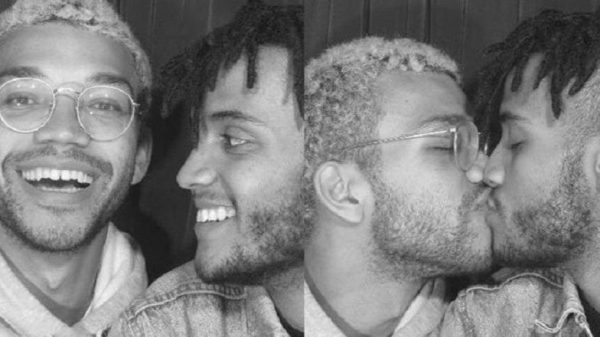I am a proud Jamaican.
I have been proud since before I even knew what that meant, before it was popular before I realized that the Jamaican/British twang of my aunts and uncles was intriguing to my friends, way before my exes would ask me to “speak Jamaican” with their eyes wide and bright. Growing up, I knew that I was different, WE were different. I drank cornmeal porridge and ate hard dough bread, knew what a “Duppy” was, and heard stories of Guinness being slipped into baby bottles. I knew these experiences were not ones I could share with my American friends and I appreciated that. I appreciate our vibrancy as a people, our humor, our beauty, and the pride we have in our tiny island. As a first generation, American-born woman, I am grateful for the fact that my family, particularly my mother, never allowed us to alienate our heritage. The good or the bad. Now, as a 31-year-old lesbian, there is a deep history and back story to the “bad,” a history of stark homophobia that I have to reconcile with, because it as much a part of me and living in my truth as is my heritage.
There is not much to be said about the culture of homophobia in Jamaica other than ZERO TOLERANCE. And by zero I mean negative zero if such a thing even existed. People of all cultures know that Jamaicans “don’t play that,” you hear it in music lyrics, watch YouTube videos of gays or suspected gays being beaten, hear the way gays and lesbians are referred to as the scum of the Earth; subsequent residents of the biblical hell hole Sodom and Gomorrah which was explained as a place of fire and brimstone skies, violence, and ramped homosexual activity. Even the English language absorbed the ideas of sin and deviation described within this world with the creation of the word “Sodomy.” It is with this dark cloud lingering over my head that I reluctantly accepted the fact that I would have to marry a man when I got older, despite what I knew or how I felt. Toying with the idea in my mind, I waited until I was 26 (and living three states away) to admit my truth, because the thought of coming out to my Jamaican family left me sick with fear; A fear far worse than anything I expected to encounter from American society. Fast forward five years, and now what was once a fear is now a thirst for knowledge and understanding. I could not accept the fact that homophobia was synonymous with Jamaican culture, would not subscribe to the idea that this was just how my family was built, how we were made to be. There had to be something more to this, as there always is- so I began to ask questions and do research. Why are Jamaicans so homophobic? The convoluted answer to this question is as deep and tragic as is the story of the Black American in America. A story that I sort of knew, a story that starts with the life long struggle of my ancestors.
Fueled by countries like Portugal, Britain, and Spain, slavery began in the 1400’s as a result of labor shortages and the need for higher production of goods spanning over 400 years. More than any other nation, the UK profited immensely of this labor due to its strong hold over the West Indies. Having colonized territories such as Jamaica, Trinidad, and Barbados the UK gained from harvesting these tropical islands for sugar using enslaved Africans, their labor becoming essential to the UK’s economic growth. In order to “prepare” newly acquired Africans for their positions as slaves, slave traders and owners used a number of methods to break them, often forming what had become known as “seasoning camps.” One of the most notorious of these camps was located in Jamaica. In these camps, slaves were renamed, forced to adopt new languages and customs, beaten, and often times raped by their owners in a process called “Buck Breaking.” With the intent of emasculation, slave owners would seek out slaves specifically for their size, strength, strong will, and penis size. These slaves or “bucks” were then raped in front of crowds of other slaves, most commonly in front of their own sons. These practices became so popular and effective in breaking slaves that separate camps called “sex farms” were created specifically for this purpose, even allowing foreign plantation owners to participate, a modern day Sodom and Gomorrah.
This history of homosexual rape has been engrained into the soil of Jamaican culture, the shock and trauma leaving a stain on the psyche of Jamaican people, specifically Jamaican men, which has been passed down through generations. The lifestyle of homosexuality, to Jamaican people, is about more than sex, it is far deeper than that. It is an assimilation to the behaviors of our oppressors, voluntary emasculation. To go along with any form of homosexual behavior, whether it be male or female, triggers a feeling of personal degradation and depravity for many. This in my mind, gives new meaning to the phrase, “it’s not you, it’s me” because in fact it is. The torturous acts of our African ancestors are essentially hard-wired into the DNA of Jamaican culture, a subconscious reminder to their successors. So although it is unfair to have to deal with it or live with it, this hatred is as natural of an instinct to many as being a man who loves a man or a woman who loves a woman is to us.

